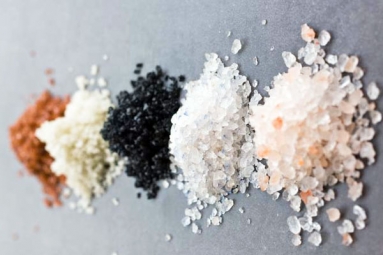
(Image source from: Freepik.com)
Salt is vital and not only plays an important role in improving the taste of food. It is important to maintain proper fluid balance, nerve function and muscle contraction. Without sodium, our bodies have difficulty performing basic functions such as transmitting nerve signals and regulating blood pressure. The importance of salt is highlighted due to its historical value. Before refrigerators existed, salt was used to preserve food and was once also used as a means of payment. In fact, the word “salariat” comes from the Latin word “salarium,” which also means “salary,” which in turn comes from “sal,” which means “salt.” In ancient Rome, “salarium” referred to the money given to Roman soldiers to buy salt, a valuable and necessary commodity at the time. Although salt has many benefits, consuming too much salt can cause numerous health problems. Like sugar, salt is highly addictive. So what is the right amount of salt to consume daily and how does it affect the gut microbiome?
The main purpose of salt in our diet is to improve the taste of food. It makes food tastier and provides the sodium and chloride needed by the body. Different types of salt such as pink salt, rock salt and black salt also contain small amounts of other minerals. "If you eat a balanced diet and include all food groups, you don't need extra salt because you have enough minerals, about 500 milligrams of sodium per day, which is a lot," says Pooja Shahbawe, a nutritionist in Mumbai. Is. However, our taste buds and body get used to salt over time, so cutting out salt can lead to changes in your body. He added: The main concern is iodine. Crops and vegetables, especially in areas far from the coast, do not have enough iodine.
Our intestines are home to trillions of bacteria, collectively known as intestinal flora. These microbes play an important role in digestion, immune system function, and even mood. A balanced gut flora contributes to overall health, but an imbalance, known as dysbiosis, can lead to digestive problems, inflammation and autoimmune diseases. Studies in mice have shown that high-salt diets can alter the composition of gut bacteria, leading to inflammation and worsening symptoms of autoimmune diseases such as multiple sclerosis. Another study showed that reducing salt intake restores the balance of gut bacteria and reduces inflammation. In particular, a high-salt diet has been shown to reduce the number of lactic acid bacteria species, which are an important part of the healthy human microbiome, explains Dr. Rohi Pirzada, a senior physician and critical care specialist in Mumbai. High dietary sodium consumption can lead to dysbiosis of the gut microbiome by altering the composition, abundance and diversity of microorganisms. "
“A moderate reduction in dietary sodium can increase circulating short-chain fatty acids (SCFAs) and strengthen the gut microbiome,” says Sweedar Trinidade, nutritionist at PD Hinduja Hospital and Medical Research Center in Mumbai. This also applies to harmful bacteria such as Clostridium difficile. They endanger the intestinal barrier and lead to increased permeability and leakage of food. The answer is that they are highly processed foods that contain a lot of salt and are highly addictive to add to your body whether it is homemade or not. Reducing salt intake not only helps our gut, but also our body. It helps more than you think.
“Low salt intake suppresses intestinal inflammatory markers that are linked to high blood pressure,” says nutritionist Beebe.
Inadequate salt intake can disrupt fluid regulation and lead to dehydration. Salt is crucial for adrenal function and extreme restriction can lead to adrenal fatigue.
However, the nutritionist added that gut health is complex and reducing salt consumption alone cannot fully address all symptoms. “Achieving optimal gut health may require a holistic approach that includes a balanced diet, fiber intake, probiotics, and stress management,” she suggests. Contact your doctor for individual advice.
Although more research is needed to fully understand the connection between salt and gut health, there is ample evidence that reducing salt intake can help the microbiome. Plus, it's a simple change that can improve your heart health and your overall health.
















